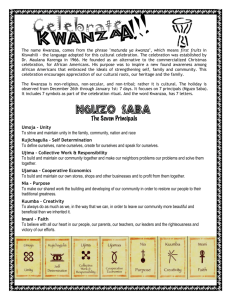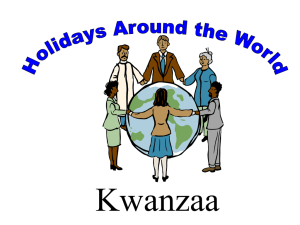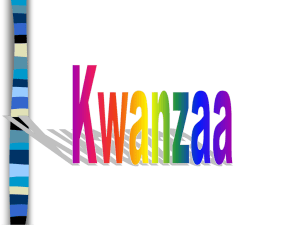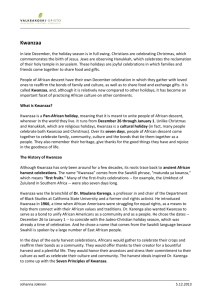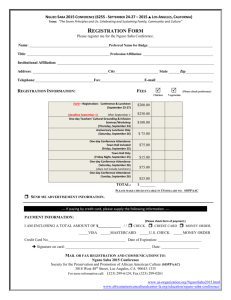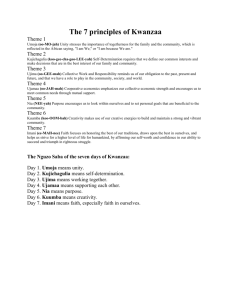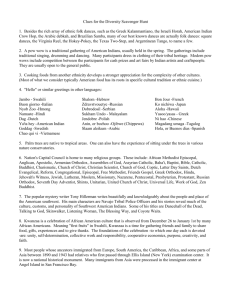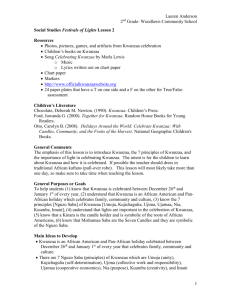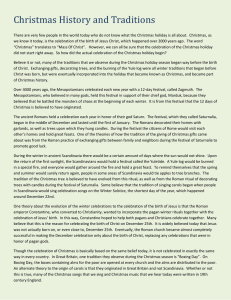Kwanzaa
advertisement
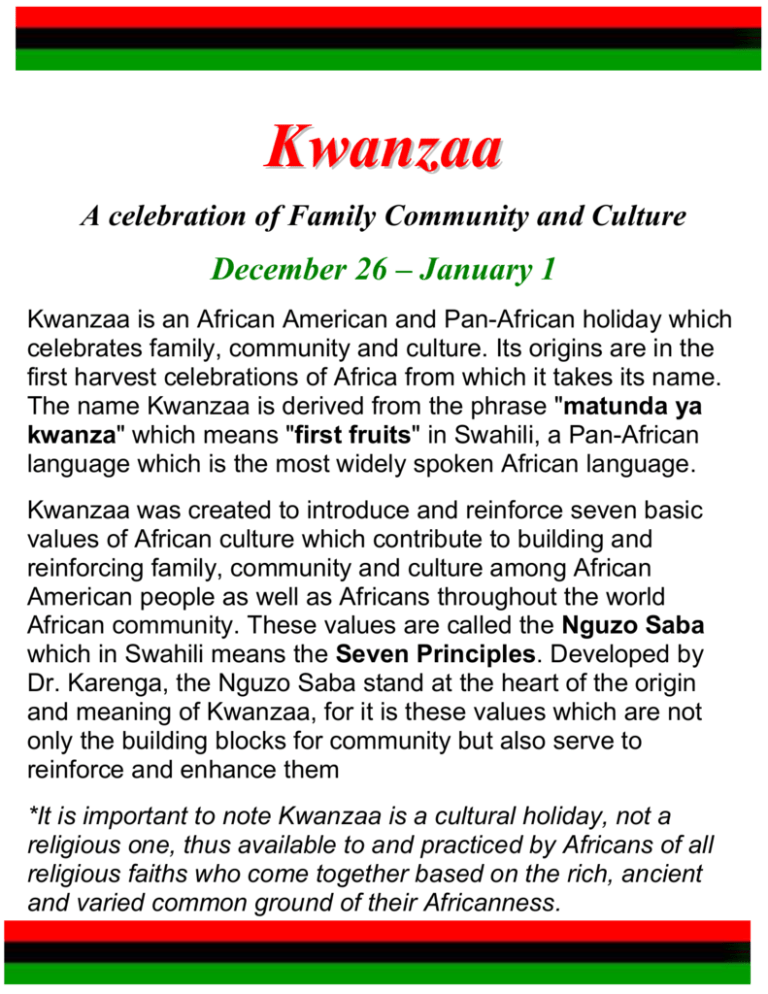
Kwanzaa A celebration of Family Community and Culture December 26 – January 1 Kwanzaa is an African American and Pan-African holiday which celebrates family, community and culture. Its origins are in the first harvest celebrations of Africa from which it takes its name. The name Kwanzaa is derived from the phrase "matunda ya kwanza" which means "first fruits" in Swahili, a Pan-African language which is the most widely spoken African language. Kwanzaa was created to introduce and reinforce seven basic values of African culture which contribute to building and reinforcing family, community and culture among African American people as well as Africans throughout the world African community. These values are called the Nguzo Saba which in Swahili means the Seven Principles. Developed by Dr. Karenga, the Nguzo Saba stand at the heart of the origin and meaning of Kwanzaa, for it is these values which are not only the building blocks for community but also serve to reinforce and enhance them *It is important to note Kwanzaa is a cultural holiday, not a religious one, thus available to and practiced by Africans of all religious faiths who come together based on the rich, ancient and varied common ground of their Africanness. Kwanzaa (Swahili/English) NGUZO SABA (The Seven Principles) Umoja (Unity) To strive for and maintain unity in the family, community, nation and race. Kujichagulia (Self-Determination) To define ourselves, name ourselves, create for ourselves and speak for ourselves. Ujima (Collective Work and Responsibility) To build and maintain our community together and make our brother's and sister's problems our problems and to solve them together. Ujamaa (Cooperative Economics) To build and maintain our own stores, shops and other businesses and to profit from them together. Nia (Purpose) To make our collective vocation the building and developing of our community in order to restore our people to their traditional greatness. Kuumba (Creativity) To do always as much as we can, in the way we can, in order to leave our community more beautiful and beneficial than we inherited it. Imani (Faith) To believe with all our heart in our people, our parents, our teachers, our leaders and the righteousness and victory of our struggle. from Dr.Maulana Karenga’s web site The Symbols of Kwanzaa Kwanzaa has seven basic symbols and two supplemental ones. Each represents values and concepts reflective of African culture and contributive to community building and reinforcement. The basic symbols in Swahili and then in English are: Mazao (The Crops) These are symbolic of African harvest celebrations and of the rewards of productive and collective labor. Mkeka (The Mat) This is symbolic of our tradition and history and therefore, the foundation on which we build. Kinara (The Candle Holder) This is of our roots, our parent-people, continental Africans Muhindi (The Corn) This is symbolic of our children and our future which they embody. Mishumaa Saba (The Seven Candles) These are symbolic of the Nguzo Saba, the Seven Principles, the matrix and minimum set of values which African people are urged to live by in order to rescue and reconstruct their lives in their own image and according to their own needs. Kikombe cha Umoja (The Unity Cup) This is symbolic of the foundational principle and practice of unity which makes all else possible. Zawadi (The Gifts) These are symbolic of the labor and love of parents and the commitments made and kept by the children. The two supplemental symbols are: Bendera (The Flag) The colors of the Kwanzaa flag are the colors of the Organization Us, black, red and green; black for the people, red for their struggle, and green for the future and hope that comes from their struggle. It is based on the colors given by the Hon. Marcus Garvey as national colors for African people throughout the world. Nguzo Saba Poster (Poster of The Seven Principles) from the web site of Dr. Maulana Karenga
